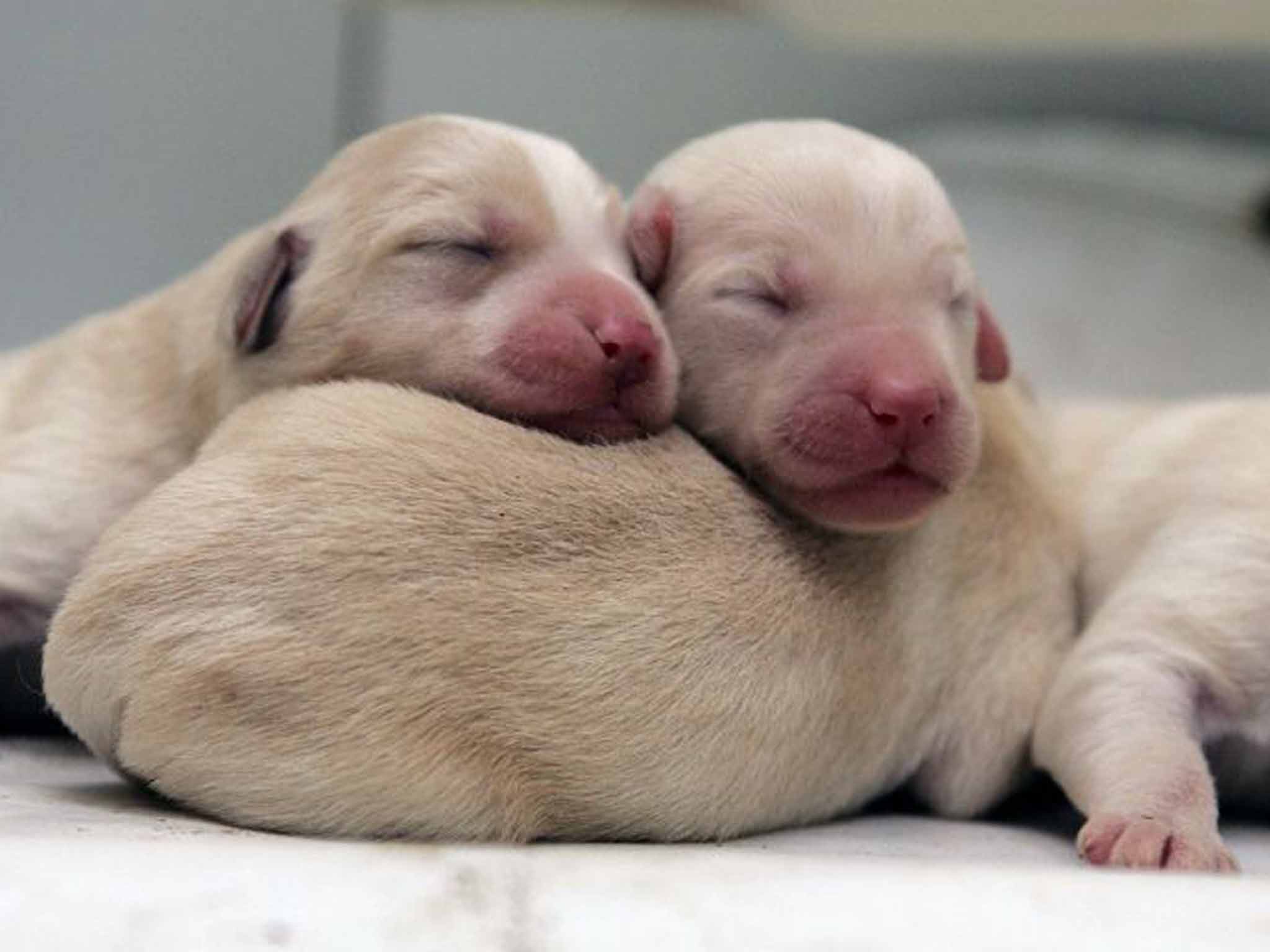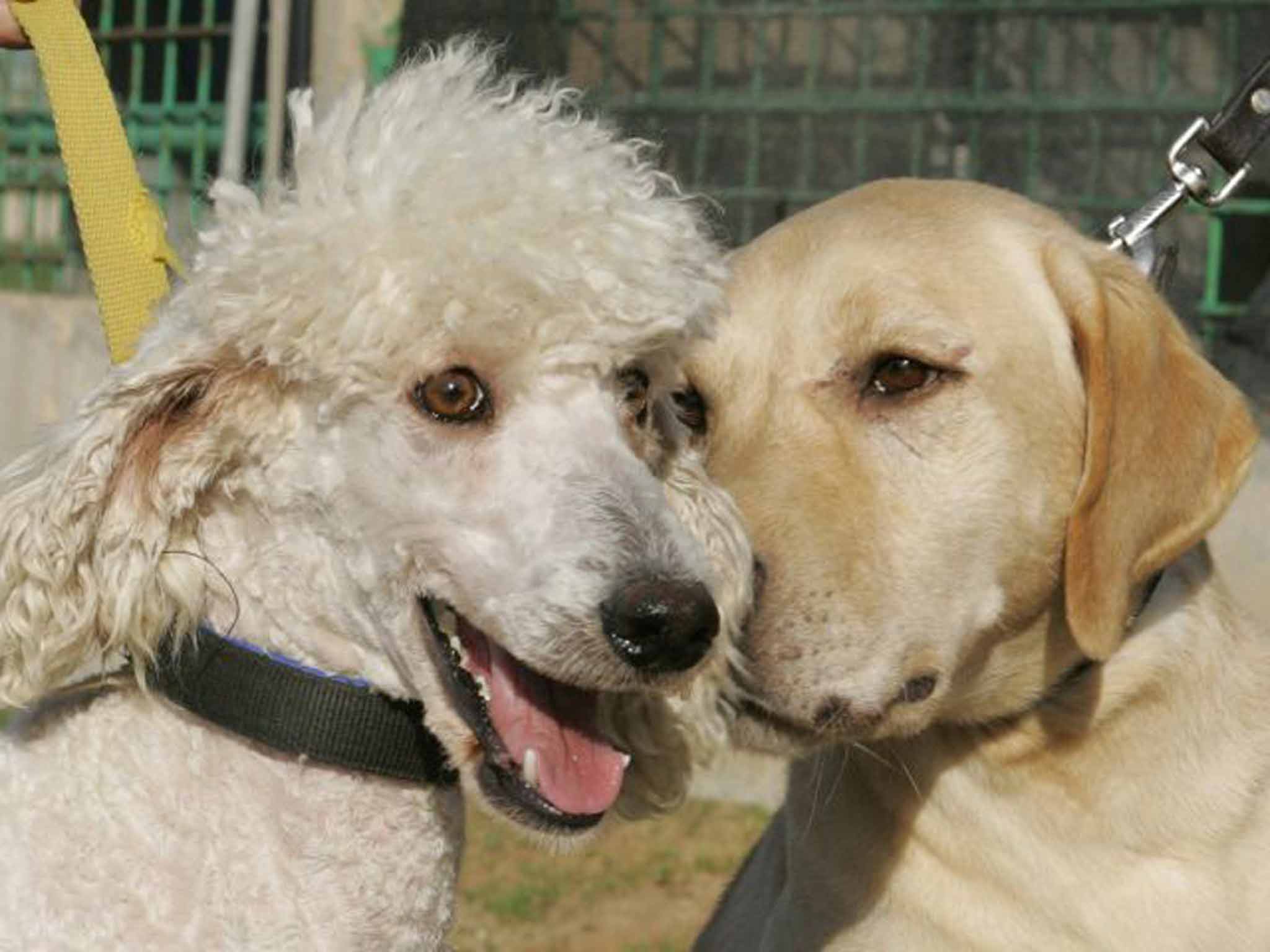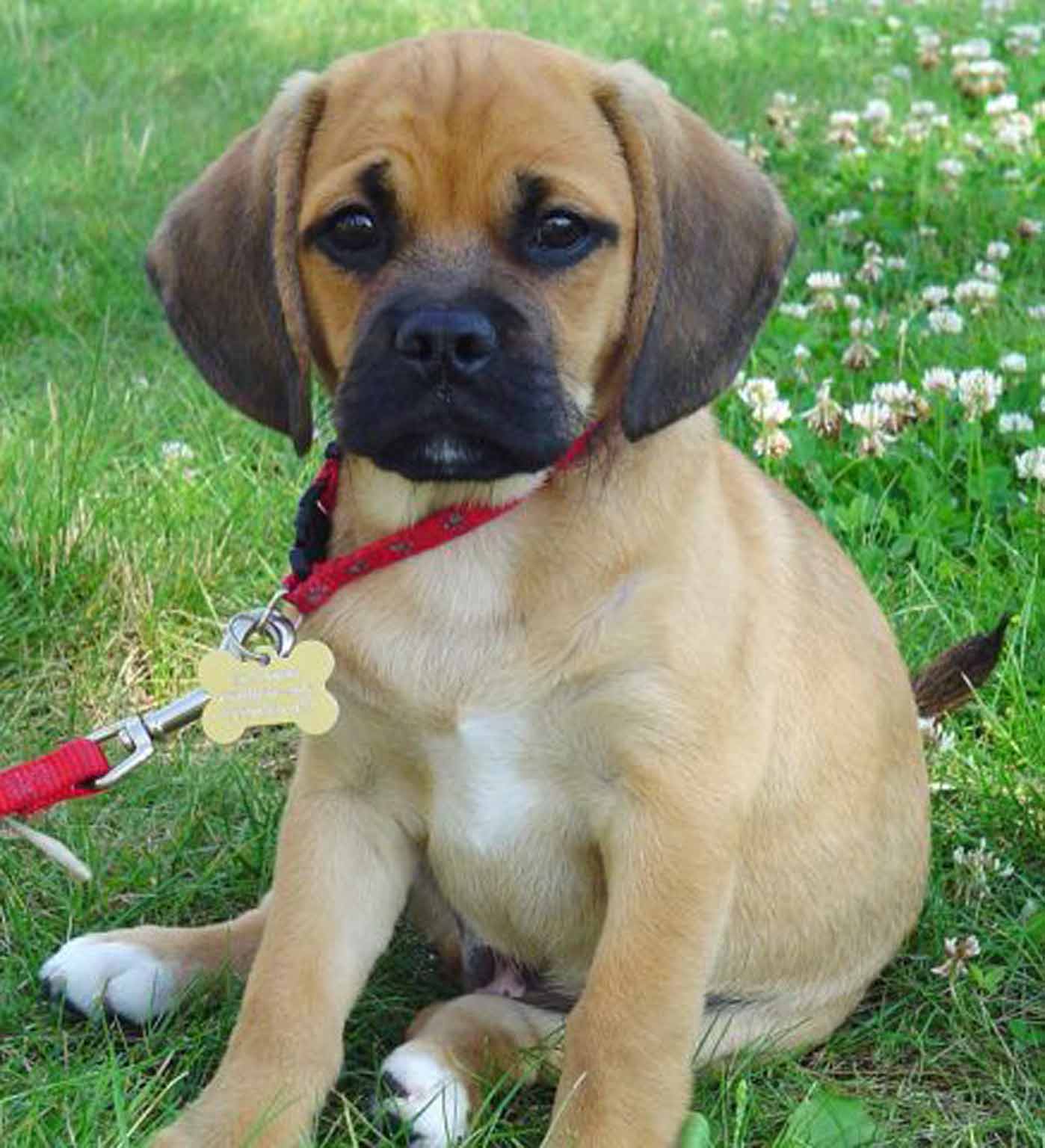Why puggles, labradoodles and maltipoos are causing a stir in pedigree circles
Aussiepom? Puggle? As The Kennel Club reconsiders crossbreeds, it seems designer pooches – or 'Frankenstein dogs' – are here to stay. Caroline Corcoran reports

Your support helps us to tell the story
From reproductive rights to climate change to Big Tech, The Independent is on the ground when the story is developing. Whether it's investigating the financials of Elon Musk's pro-Trump PAC or producing our latest documentary, 'The A Word', which shines a light on the American women fighting for reproductive rights, we know how important it is to parse out the facts from the messaging.
At such a critical moment in US history, we need reporters on the ground. Your donation allows us to keep sending journalists to speak to both sides of the story.
The Independent is trusted by Americans across the entire political spectrum. And unlike many other quality news outlets, we choose not to lock Americans out of our reporting and analysis with paywalls. We believe quality journalism should be available to everyone, paid for by those who can afford it.
Your support makes all the difference.Ask an elderly relative if they're partial to a bichpoo and you'll probably receive a look of confusion. But in a few years' time, the breed will be as familiar as the spaniel, Labrador and golden retriever, as crossbreeds become ubiquitous.
The latest acknowledgement that these pooches are more than a passing fad comes in the form of the traditional Kennel Club, century-old purveyor of pedigree dogs, declaring that it is considering recognising crossbreeds.
But the trend has been gathering pace for a while now, from the peekapoo that trots over to you in the park to the picture your colleague sends you of an Aussiepom (an Australian shepherd mixed with a Pomeranian) that supposedly looks like an Oreo biscuit. BuzzFeed even favours crossbreeds as a list topic: surely the marker of any zeitgeist.
Crossbreeds – or designer dogs, as they are often termed, thanks to their appearance on reality shows and in celebrity arms – are a status symbol, too. Last year, one restaurant in Hampstead, north London, hosted a charity “Cockapoo Doggie Sunday”, which was attended by 44 of the dogs and their owners. Rita Ora has a Maltipoo (a cross between a Maltese and a poodle), Jake Gyllenhaal has a puggle (beagle and pug) and Elle Macpherson's Labradoodle, Bella, has even emulated its owner to try its paw at some modelling. The Queen herself breeds dorgis, a cross between a dachshund and a corgi.

But where did their popularity come from?
“I make an analogy to the Skoda car,” says Beverley Cuddy, the editor and publisher of Dogs Today. “The Skoda was a good car but it had a terrible name and needed a rebrand, and the same was true of the poodle. The poodle is a great family pet which went out of fashion.”
So the poodle – to view it cynically – was given a marketing boost and where it led, other dogs slipped off their leads and followed.
“With all crossbreeds, people love the anti-establishment of it, too,” Cuddy says. “Crossbreeds were something new and once people owned them and liked them, it caught on by word of mouth. It's a phenomenon, and though it drives a lot of the pedigree people mad, there's no stopping it.”
Ah yes, the “pedigree people”. Purists through and through, many of them vehemently object to the popularity of crossbreeds and to the Kennel Club's acknowledgement of them, and they're not the only ones.
Wally Conron, from Australia's Royal Guide Dog Association, was the “inventor” of the Labradoodle, coming up with the fusion when he was asked to provide a guide dog for a visually impaired woman whose husband had a dog allergy. Now he has seen where it led, Conron says he regrets creating a “Frankenstein” dog.
There are also health concerns. Many crossbreed owners have reported more illnesses in these dogs, with experts concluding that this is a result of fusing the weaknesses of one breed with that of another. Mental health is a worry, too – when you breed dogs that hunt with dogs that play, the instincts become extremely unsettled.

Many of these problems, though, can be eradicated with better health checks and legislation on breeders, in much the same way as with pedigree dogs. This is one of the reasons why the Kennel Club, which runs a register of dogs, is reconsidering them.
The organisation has long recognised crossbreeds on its companion dog and activity registers, but this hasn't included the same detailed information as the pedigree register has about the ancestry and health-test results of the dogs. This move, says Caroline Kisko, the secretary of the Kennel Club, is a way for them to ensure that dogs live happy, healthy lives.
“The Kennel Club's concern is that too many crossbreed breeders are making false promises about how their dog will turn out,” Kisko says. “By their nature, crossbreed puppies will inherit a random combination of genes from their two breeds of parent and so you cannot accurately predict. Misinformation can lead the dogs to be abandoned by their owners, when they don't suit their lifestyles.
“Furthermore, many breeders of crossbreeds are failing to give the parents of their puppies the appropriate health and DNA tests for conditions that can affect their breeds, leading the puppies to inherit problems.”
For now, though, it looks like designer dogs are going nowhere. Except to the other side of the park, where they've just seen a tennis ball to play with.
Join our commenting forum
Join thought-provoking conversations, follow other Independent readers and see their replies
Comments